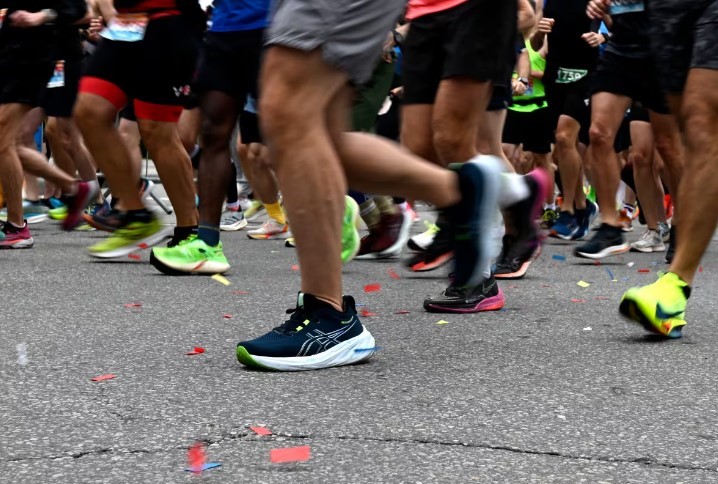
Climate Change Alters Running Patterns: When, Where, and Whether to Run
Extreme weather prompts runners to rethink schedules, routes, and safety
Extreme weather conditions are forcing runners to rethink their routines, impacting when, where, and even if they run. Heat, wildfire smoke, and smog are making certain types of outdoor exercise hazardous, prompting events to reconsider routes and times.
"I saw it was going to be 30 or 35 degrees after work, so I was up early and out running by 7 a.m. for a cooler temperature," she told CBC News last week. This runner, accustomed to adjusting for icy winter conditions and rain, faced a new challenge last summer: wildfire smoke. Record-breaking fires fueled by drought and high temperatures blanketed cities across Canada with thick smoke, marking the most destructive wildfire season ever recorded, attributed to human-caused climate change.
"I think that was really a wake-up call for me," she said. "I'm used to checking the weather forecast in winter, but smoke was a new element to contend with." On smoky days, O'Hanley opts for the treadmill. Extreme weather events like flooding have also caused the running group she co-organizes to change their routes.
From casual joggers to Olympians, extreme weather is reshaping running habits. Run clubs and running events are adapting, but this wasn't always the case.
"When I first entered this industry, it was almost unheard of to cancel an event," said Kirsten Fleming, executive director of Run Calgary. "Now, it's commonplace — every year, there are events getting cancelled for climate-related reasons." To monitor weather closely, Run Calgary has even hired a meteorologist for daily briefings leading up to events.
"Leading up to race week, we are looking at the forecast 10 days out, five days out, one day out," Fleming said. "It has really changed what we do — we used to just plan and execute events with a fair degree of certainty they would take place." Run Calgary has had to adapt to a range of risks, including air quality advisories, extreme heat, thunderstorms, and flooding, hosting events in temperatures from 30 C to -30 C.
Midnight Runners, an international organization coordinating nighttime runs, sees about 350 people gather in Toronto every Tuesday at 7 p.m., when it is typically cooler. However, Ben Davies, who helps organize the runs, has noticed an increase in hot nights. "I can't recall summers at 7 p.m. on a Tuesday being 30 degrees, but now we're seeing those runs have that heat," he said. The group has canceled runs due to air quality but adjusts where possible and emphasizes hydration, encouraging sports drinks to replenish electrolytes lost from sweating.
"If it's extremely hot and you're going for a run, listen to your body," Davies advised. "Adjust pace, expectations, run at cooler times, protect your skin, and dress for sweat — use all the tools to make running a better experience."
O'Hanley, who has pushed herself to run in snowstorms, is more cautious about smoke. "That's a new thing we need to consider — when the benefit of running is outweighed by the negative impact," she said.
Dr. Michael Brauer, a professor at the University of British Columbia's School of Population and Public Health, stated that exercise is generally beneficial except in cases of severe pollution, like wildfire smoke. "It's only when it's highly polluted that you're doing more harm than good," he said. "Shifting times is great, but pollution levels vary throughout the day. Summer smog peaks in the late afternoon, making morning runs ideal. Wildfire smoke settles overnight, with levels highest in the early morning."
Dr. Michael Koehle, a UBC sports and exercise medicine professor, echoed concerns about wildfire smoke and warned against running in extreme heat, which can lead to illnesses ranging from mild heat exhaustion to life-threatening heat stroke.
"People of all ages are taking their health and wellness seriously, from tiny runners at two years old to our oldest runner this year, who was 88," said Fleming of Run Calgary. Older adults struggle more with heat stress due to reduced sweating and medications that hinder temperature regulation. Young children also have difficulty recognizing signs of heat-related stress, highlighting the need for caution in extreme heat.